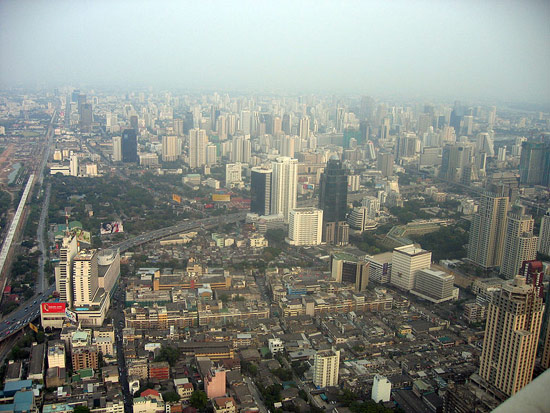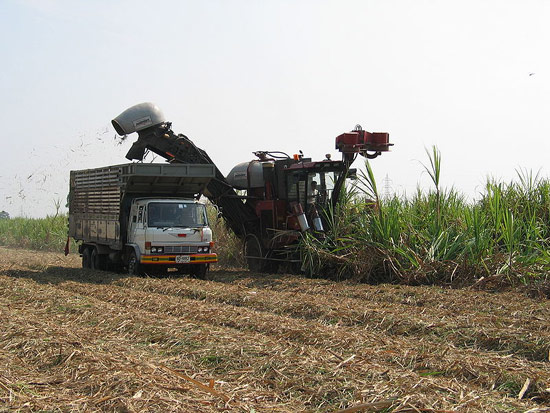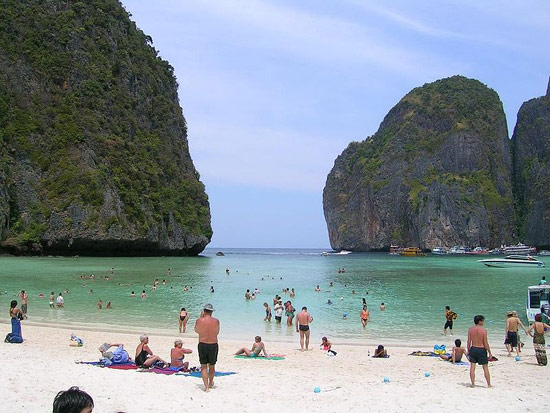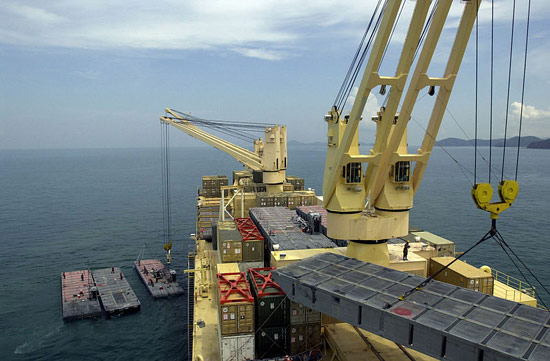Country Snapshot: Business Overview
Thailand’s economy benefits from abundant agriculture, thriving tourism, and a highly diversified manufacturing sector. The country’s sophisticated infrastructure, free market principles, and pro-investment policies led to fairly stable growth rates following the 1997 Asian financial crisis. However, the global recession of 2008-2009 led to a steep drop in export demand and decreased economic growth. While a surge in exports enabled the economy to bounce back, severe flooding in Bangkok's industrial areas in 2011 crippled the manufacturing sector, again hampering growth. Additionally, the political unrest that began in 2008 and led to the establishment of a military junta in 2014, left the country in economic uncertainty as the government transitioned. Despite the anti-government protests and natural disasters, which have at times affected the nation's important tourism sector, international tourist arrivals have generally increased from year to year.
Major Industries
Thailand is among the world's largest producers of tin and tungsten. Tourism is also one of the country’s most important industries. Others include integrated circuits, furniture, automobiles and automotive parts, plastics, jewelry, electric appliances, computers and parts, agricultural processing, beverages, cement, tobacco, and textiles and garments. Thailand’s agricultural sector, which accounts for over a third of its GDP, produces rubber, cassava (tapioca), soybeans, corn, coconuts, rice, and sugarcane. Thailand’s plentiful natural resources also include lignite, fish, timber, rubber, arable land, natural gas, tantalum, lead, gypsum, and fluorite. The nation controls the only land route from Asia to Malaysia and Singapore.
Trade Overview
Exports account for 70 percent of Thailand's GDP. The country's top export partners are China, with 11 percent of sales, Japan, the US, Hong Kong, Malaysia, Indonesia, Singapore, and Australia. The country exports electrical appliances, fishery products, computers, jewelry, automobiles, textiles and footwear, rubber, and rice.
Thailand’s main import partners are Japan, with 20 percent of purchases, China, the United Arab Emirates, Malaysia, and the US. Imported commodities include intermediate goods and raw materials, fuels, consumer goods, and capital goods.
Foreign Investment
The military government that assumed power in 2014 made clear its priority to create an attractive atmosphere for foreign investors, particularly in the automotive industry. The government tried to encourage investment with the promise of an open economy. Despite this, the international community did not look approvingly on the military coup. The US downgraded diplomatic ties with the country, and the European Union (EU), Thailand's second biggest investor prior to the coup, suspended visits and trade talks.
Transparency (Rule of Law)
Thailand suffers from significant corruption, ranking 102nd out of 177 countries in Transparency International’s Corruption Perceptions Index. The nation does not have a well-developed legal framework in place; laws and regulations are hierarchical and complex. Public officials are rarely convicted for corruption-related offenses. Private and intellectual property rights are protected; legal proceedings are slow and can be affected through extralegal means. Thailand is ranked 72nd out of 178 countries and is considered “moderately free” by the Heritage Foundation's Index of Economic Freedom.
Regulatory Environment (Ease of Doing Business)
Thailand stands at 18th out of 189 countries in the World Bank's ease of doing business ranking. The regulatory environment protects the ability to start, operate, and close a business. Timeframes for starting a business and obtaining a business license are faster than the world average. Credit is allocated based on market availability, and capital markets are well developed. Thailand has high income taxes and moderate corporate tax rates, along with value-added and property taxes.
Article written for World Trade Press by Eileen Rojas .
Copyright © 1993—2025 World Trade Press. All rights reserved.

 Thailand
Thailand 


